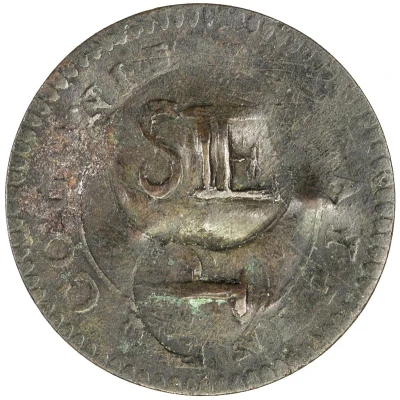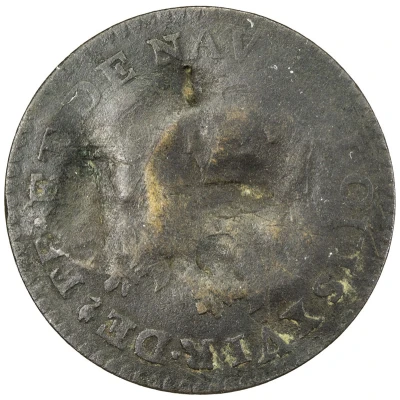1 Stuiver "Cayenne-stuiver" Countermark C12 excuse - French Occupation ND
| Silver | - | - |
| Issuer | Saint Eustatius (Netherlands Antilles) |
|---|---|
| Type | Standard circulation coin |
| Years | 1797-1809 |
| Value | 1 Stuiver |
| Composition | Silver |
| Shape | Round |
| Technique | Milled, Countermarked |
| Demonetized | Yes |
| Updated | 2024-10-06 |
| Numista | N#106296 |
|---|---|
| Rarity index | 97% |
Reverse
Reverse of Cayenne 2 sous coin with incuse back of counter mark
Comment
The 'cayenne stuiver' was a 2 sous coin minted in the West Indies (Colonie de Cayenne) by the French government, that was used on a lot of non-French islands in the region (including Saint Martin, Saint Bartholomew etc) as well.According to Publication 15-12-1797 the 'Cayenne Stuivers' and similar coins, were countermarked with the letters 'SE'. Smith Pierre dit Flamand was sworn in to make the stamps. On 23-1-1798 a new publication warned for counterfeits and stating that only the old marked, old plain, old Danish and Dutch Stuivers remained of value. Later, in 1809, these coins were marked again, this time with a 'P'.
KM lists these coins as existing next to billon and copper coins, although the existence of the silver and copper coins are not mentioned by Scholten and are therefor questionnable. In addition 'cayenne stuivers' with raised counter marks are considered forgeries by most authors.
Interesting fact
The Cayenne-stuiver coin from Saint Eustatius is interesting because it was used as a form of currency during the French occupation of the island, despite being issued by the Dutch. This highlights the complex history of the island and the various influences that have shaped its culture and economy.

